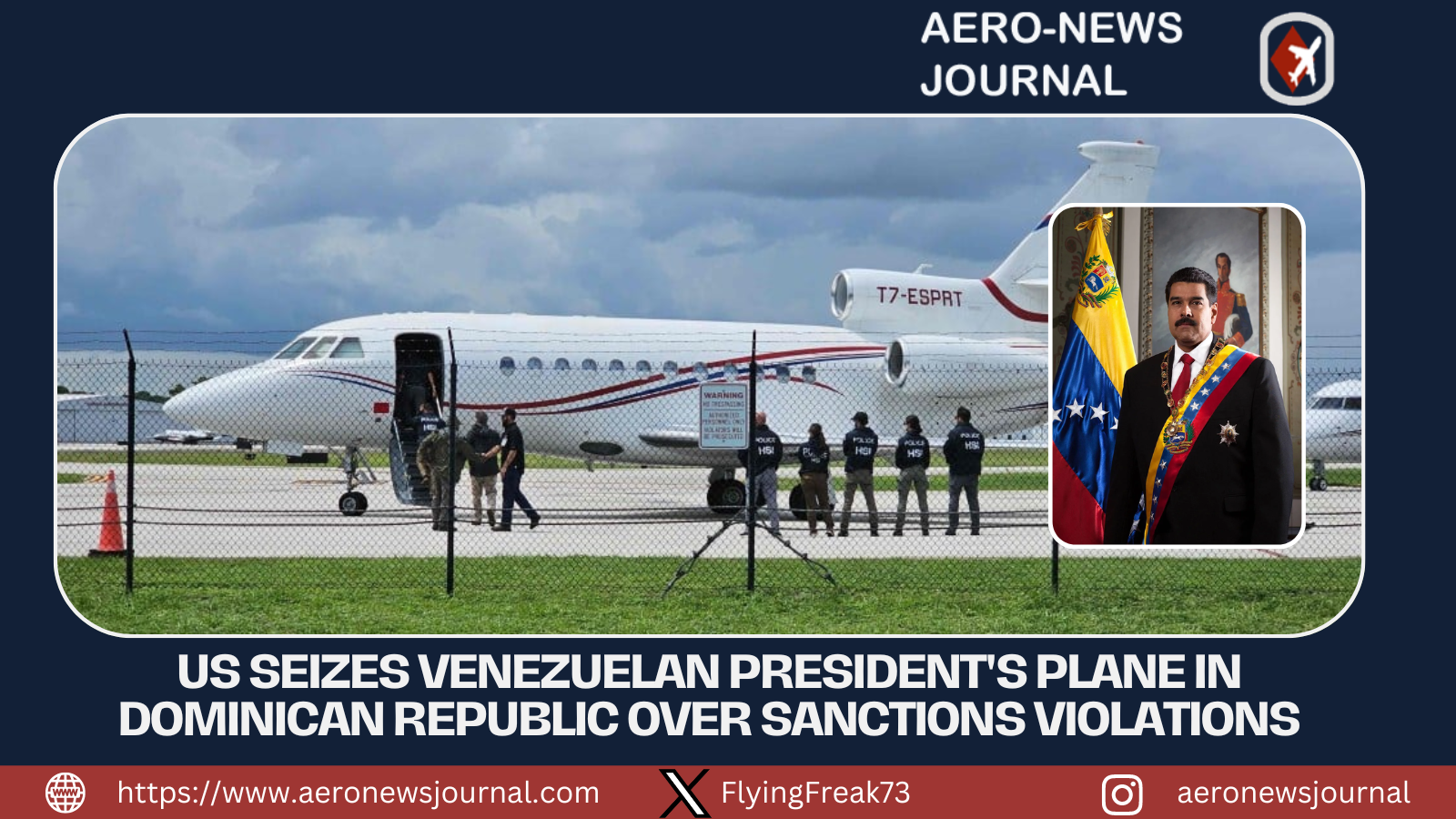
The United States, in a bold enforcement of its sanctions against Venezuela, has seized a luxury jet used by Venezuelan President Nicolás Maduro. This Dassault Falcon 900EX, valued at approximately $13 million, was taken from the Dominican Republic and flown to Florida, marking a significant escalation in the geopolitical tensions between Washington and Caracas. The seizure, executed on September 2, 2024, was based on allegations that the plane's purchase and subsequent export from the U.S. violated American sanctions and export control laws.
.gif)
The jet, initially purchased through a Caribbean-based shell company in late 2022 to early 2023, was intended to mask the involvement of Maduro's associates. This transaction was designed to circumvent an executive order that prohibits U.S. persons from engaging in transactions with representatives of Maduro's government, a measure put in place to pressure the Venezuelan regime over democratic backsliding and human rights abuses. The plane, after being smuggled out of the U.S., became a frequent flyer for Maduro, notably used for his international travels, including diplomatic missions and personal trips, showcasing the regime's defiance against international sanctions. The operation to seize the aircraft was a coordinated effort involving multiple U.S. federal agencies, highlighting the Biden administration's commitment to enforcing its foreign policy objectives through legal and economic measures. This action comes in the wake of Venezuela's recent presidential election, which the U.S. and other international observers have criticized for electoral irregularities, further straining relations between the two countries.
The Dominican Republic, where the plane was undergoing maintenance, played a cooperative role in this seizure, underscoring the international isolation Maduro's government faces. The Dominican authorities' involvement reflects a broader willingness among some nations to align with U.S. foreign policy directives against Venezuela, particularly when it comes to combating corruption and enforcing sanctions. Reactions to the seizure have been mixed. On platforms like X, users expressed a range of sentiments from approval of the U.S.'s hard stance against what many see as a corrupt regime, to criticism over what some perceive as overreach or an act of piracy by the U.S. against a sovereign nation's leader. Venezuelan state media and officials have condemned the seizure as an act of aggression, labeling it as part of a recurring practice of U.S. "piracy" against Venezuela.
The U.S. Justice Department, in announcing the seizure, aimed to send a clear message about the enforcement of its laws and sanctions, stating that such actions against sanctioned Venezuelan officials would not be tolerated. This move could potentially set a precedent for how the U.S. might deal with similar violations in the future, using its legal framework to extend its geopolitical influence. As the plane now sits in Florida, the next steps involve legal proceedings for its forfeiture, where Venezuela could theoretically contest the seizure. However, given the political context, this seems unlikely, and the aircraft might serve as a seized asset or bargaining chip in future diplomatic negotiations. This event, therefore, not only underscores the U.S.'s commitment to its foreign policy but also highlights the complexities of international law, sovereignty, and the use of economic sanctions as tools of diplomacy.
